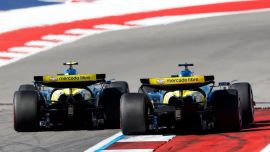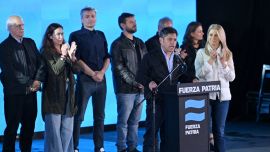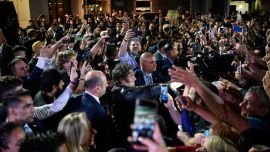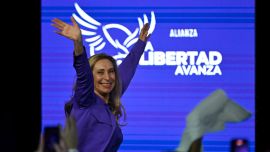An EU observer mission on Tuesday reported irregularities in Venezuelan elections for governors and mayors over the weekend, in which opposition parties participated for the first time since 2017.
Despite "better conditions" than in previous elections, the observers noted a "lack of adherence to the rule of law."
Mission head Isabel Santos told reporters that "some laws affected the equality of conditions, the balance and the transparency of the elections."
The government of President Nicolás Maduro, whose 2018 election is not recognised by part of the international community, won a landslide victory in Sunday's ballot, which was overseen by EU observers for the first time in 15 years.
Candidates aligned with Maduro won 20 of the 23 governor posts and the mayorship of the capital Caracas.
Weakened and divided, the opposition won only three states, although this significantly included oil-rich Zulia – the country's most populated region whose capital Maracaibo is Venezuela's second-largest city.
On the eve of the vote, Maduro had warned that the European Union had no authority to give a "verdict" on the process in a country that is prickly about its "sovereignty," often accusing the United States of interventionism.
"All international escorts must respect the laws of Venezuela, and must strictly respect the regulations of the electoral power that invited them," the president said.
The United States, which also had observers in Venezuela, on Monday called the vote "grossly skewed."
'Sincere unity'
Venezuelan opposition leader Juan Guaidó called Monday for "sincere unity" following the defeat.
The fractured opposition broke a three-year election boycott to take part in mayoral and gubernatorial votes but paid for its failure to put up single candidates against Maduro's ruling United Socialist Party (PSUV).
Guaidó himself rejected the election over fears it would not be fair, and refused to vote.
"It would be unfair to talk of an election failure" in an "alleged election that wasn't one," said Guaidó, adding that it was "absolutely flawed" and "clearly unequal."
"Those that managed to snatch (posts) from the dictatorship is a feat... my respects," he said.
But he said what happened on Sunday highlighted "the obvious need for unification" among opposition forces if they are to challenge the ruling party, or Maduro in the 2024 presidential election.
"It is an event that should bring us towards greater unity, a sincere unity," said Guaidó.
Guaidó has lost much of the luster he gained with his audacious bid in January 2019 to oust Maduro through popular will.
He used this position as then-parliament speaker to declare himself acting president after the legislature dismissed Maduro as a "usurper" over his 2018 reelection that was widely dismissed by the international community.
But Guaidó was never able to force Maduro, who maintained the support of the powerful military, out of the presidential palace. and within six months he had lost most of his pulling power.
Although around 60 countries recognised Guaidó's claim to be acting president, much of the opposition broke ranks and rejected him as their leader.
"It's time to open our arms" to bring everyone back into the same fold, he said.
Election authorities said Monday that 42.2 percent of the 21 million registered voters went to the polls on Sunday, although it is yet to publish final official results.
– TIMES/AFP























Comments